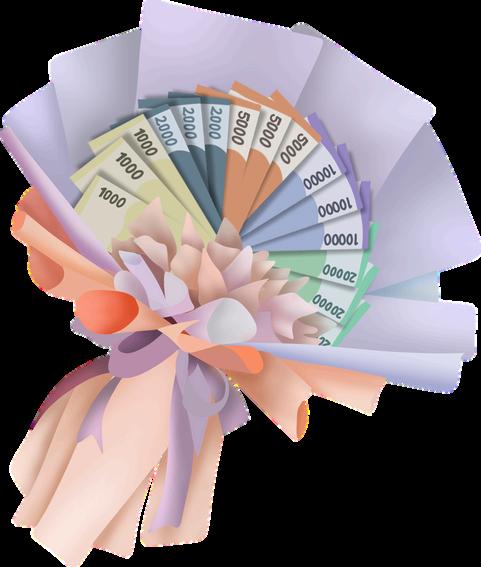
























A money journal is a tool to organize your income, expenses, and goals in one place by physically writing them in a journal (manual or digital ).
It’s not just about the math, but rather how you THINK and FEEL about money in general, your spending habits and your personal relationship with money, in addition to the numbers.
·Motivate you to stick to your budget
·Create wealth over time
·Develop healthy spending habits
·Inspire financial mindfulness
·Bring you closer to financial freedom
·Determine the root cause of your relationship with money
·Create awareness of what you are thinking about money
·Discover what you believe to be true about money
·Pinpoint money habits that make you feel guilty
·Build awareness of expensive or over-budgeted purchases
·Recognize buyer’s remorse(feelings that indicate you ng money you shouldn’t) our overall money mindset


Money journaling isn't a magical fix for all your financial problems, but it can provide insight and selfdiscipline in developing for healthy spending and saving habits.
MONEY BLOCKS are limiting beliefs about money on an unconscious or conscious level that can hinder our ability to achieve financial security. They can be rooted in early childhood experiences with money or stem from societal messages about money's value. These blocks are often seen in our justifications for earning, saving, and spending money.
Dismantling money blocks while money journaling will help shift your money mindset so you can begin the journey of healing your relationship with money.


1. What is your earliest memory of money? What feeling(s) did you experience? (happy, scary, confusion frustration, anger, etc.)
Do you remember the location? Who else was present?
What emotions or beliefs did they display in relation to money?
My earliest memory of money is The location was I was with
They displayed


2. What did you see, hear, and feel about money while growing up?
What were some of the most common things you heard your parents say about money, positive and negative?
Did you hear things like “money doesn’t grow on trees”, “here today, gone tomorrow”, or “money is the root of all evil”?


3. What are your thoughts about money? What do you believe to be true about money?
Any of these sound familiar?
"I'm not good at handling money."
"I'll never have enough money."
"I can't save enough money."
"It's a since to have a lot of money"
"Rich people are bad and have done something illegal"
"Earning money is difficult and demands a lot of effort."
"There's always a cheaper option."
"Living within your means is the best lifestyle."
"God doesn't want us to be wealthy."
"You shouldn’t make a lot of money off of helping people"


4. How does having more money make you feel?
Do you feel guilty for having more money or do you feel confident when you have more money?
Does having more money scare you? If yes, why? If no, why not?


5. Do you believe you will lose the relationships you have just because you’re earning or having more money?
Do you believe that more money will make you look evil?
Realize that money is just a resource and it doesn’t change you but rather amplifies who you are.


6. What does having more money mean to you? What do you think others will think if you have more money?
Are you concerned that if you have more money, you may be viewed as not being a good person or that you may be viewed as an evil one?


7. What kind of relationship do you have with money? How would you define that relationship? Now consider it like a romantic relationship— how would you describe it now?
Do you spend enough time getting to know your finances?
Do you pay attention to, take care of, and appreciate the flow of money? How do you treat money in public?


8. Do you feel fulfilled in your relationship with money? If not, what can you do to improve it?
What little steps you can take to enhance your relationship with money?
How would you plan a money date with yourself to get to know all about your finances?



